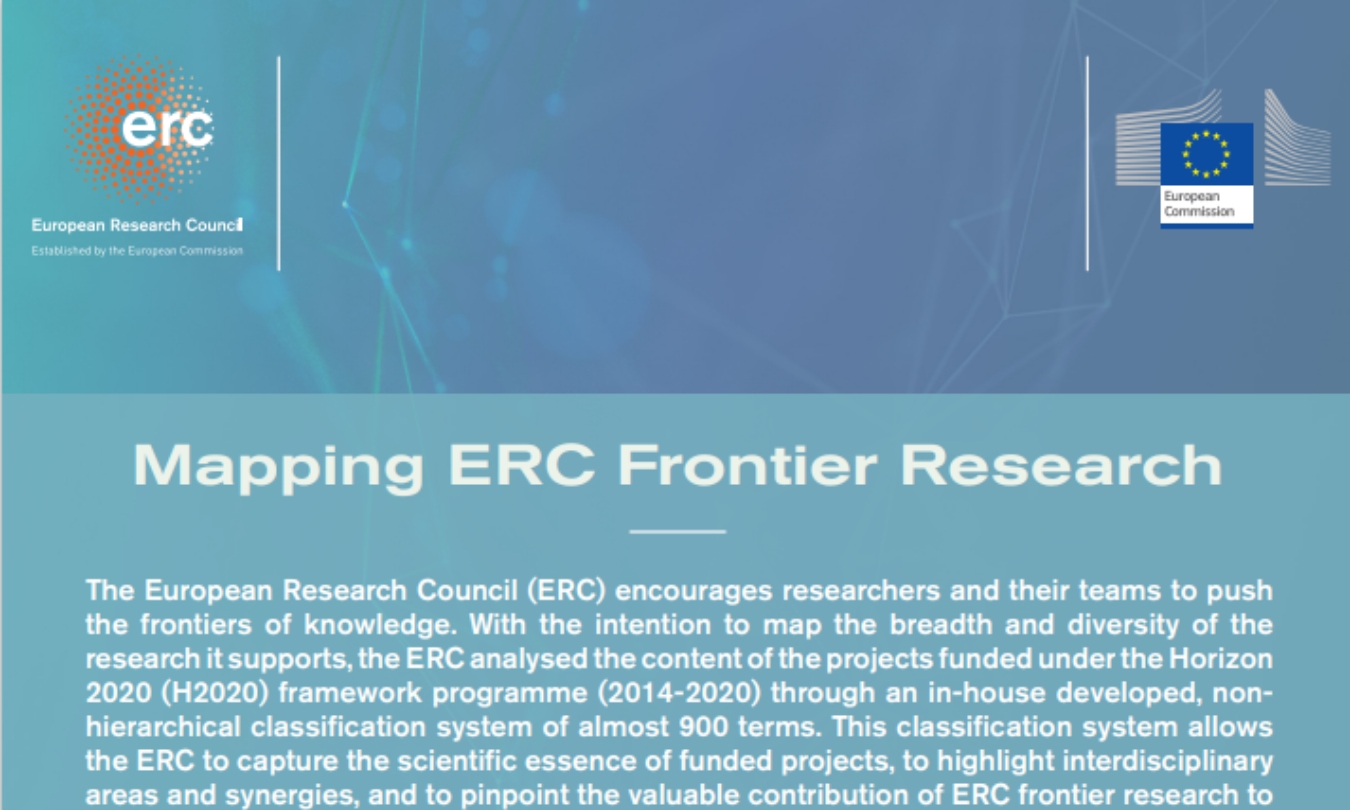Overview of ERC Frontier Research in H2020
With the intention to map the breadth and diversity of the research it supports, the ERC analysed the content of the projects funded under the Horizon 2020 (H2020) framework programme (2014-2020) through an in-house developed, nonhierarchical classification system of almost 900 terms. This classification system allows the ERC to capture the scientific essence of funded projects, to highlight interdisciplinary areas and synergies, and…

FACTSHEET-Overview-2022.pdf
( 1022.64 KB )
Download










